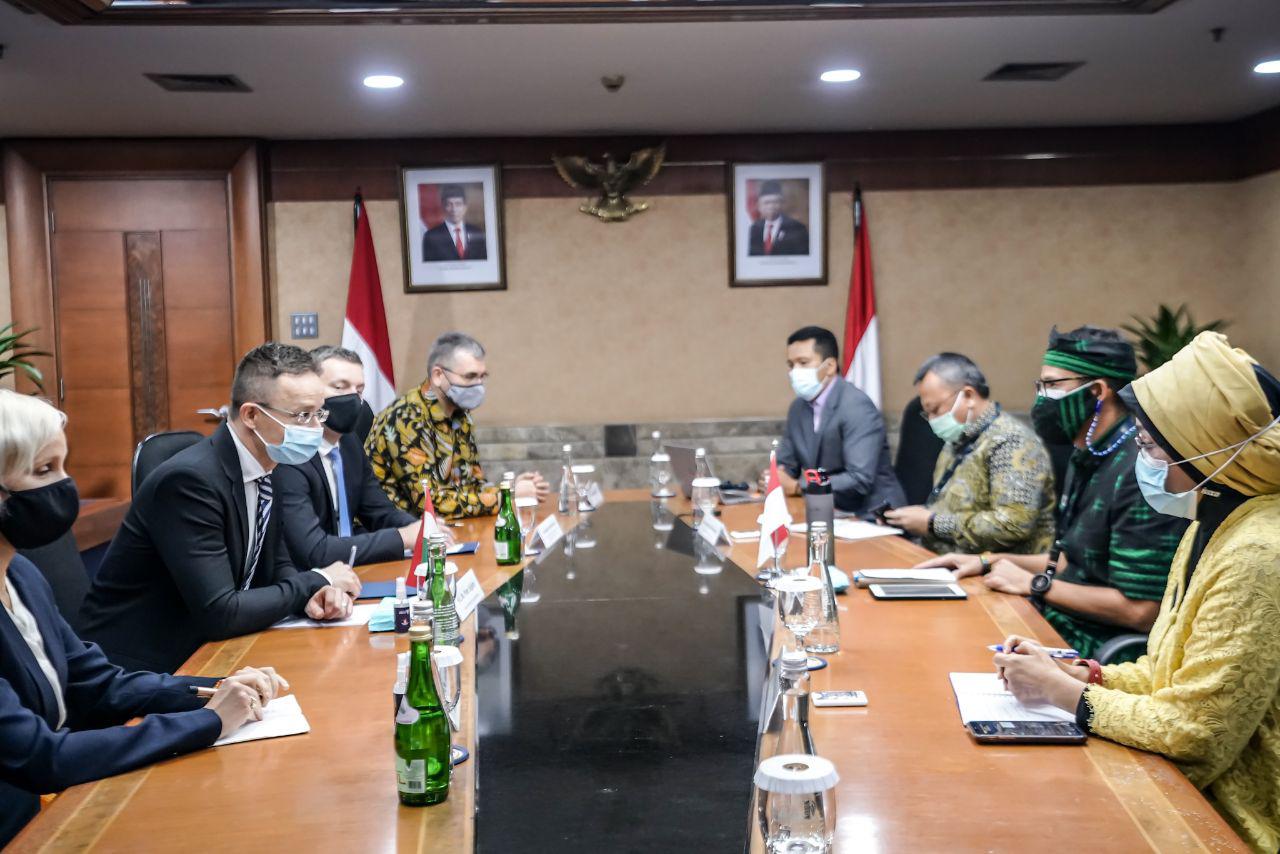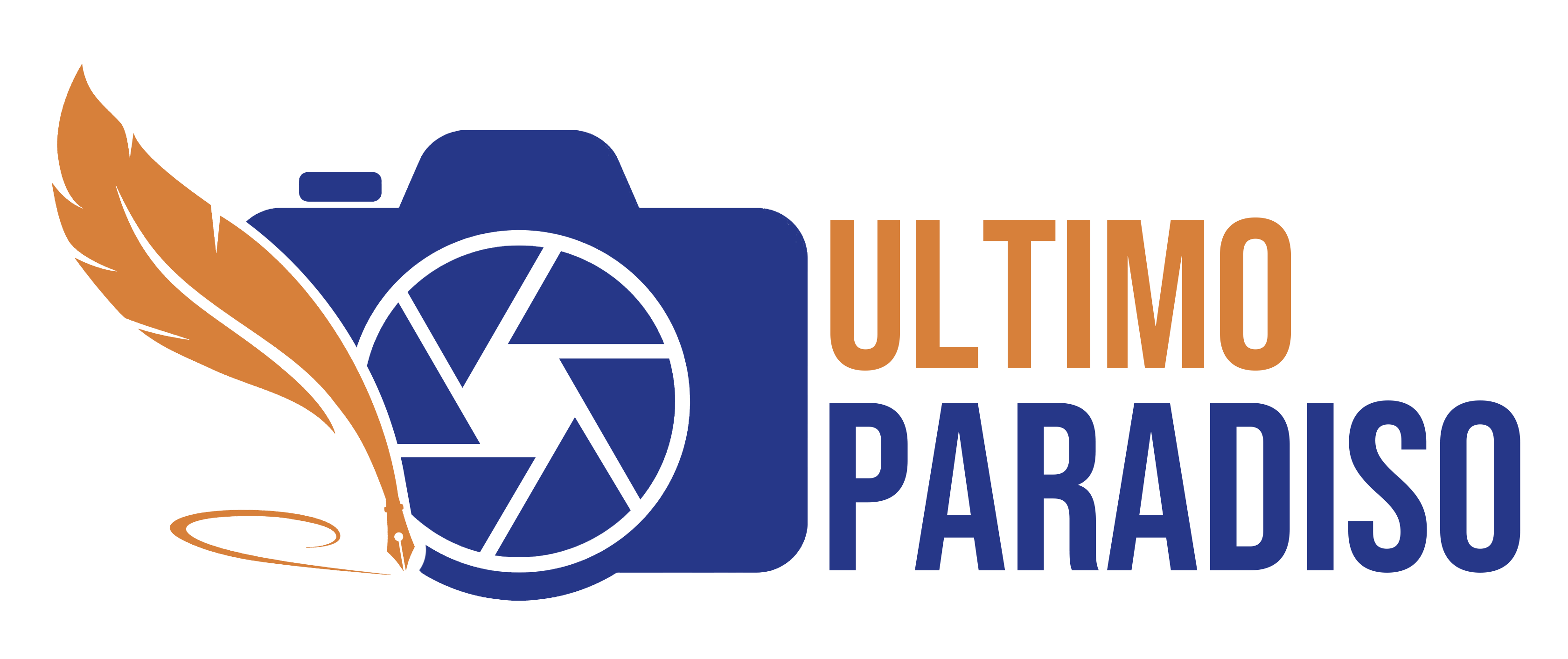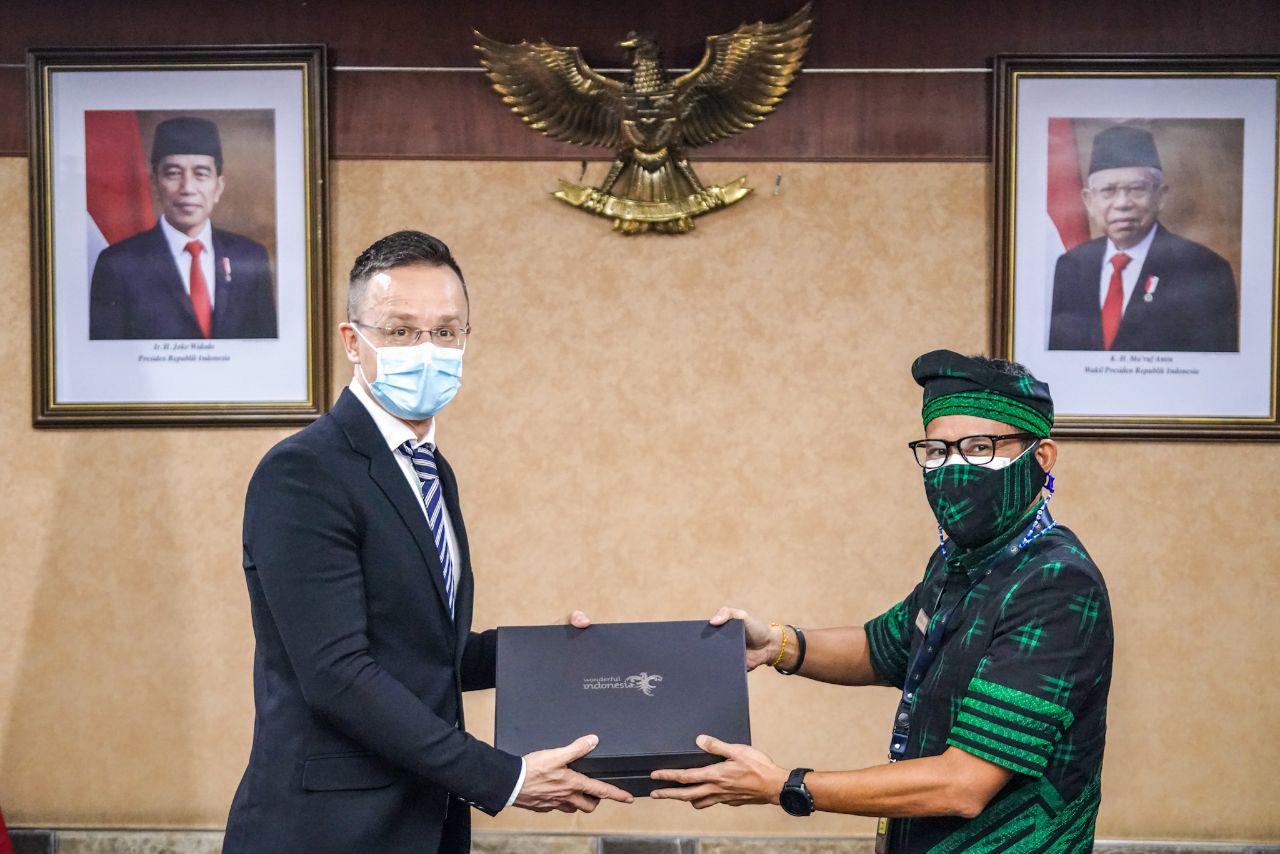JAKARTA – The Indonesian government through the Ministry of Tourism and Creative Economy / the Tourism and Creative Economy Agency agreed to strengthen cooperation in the tourism sector and creative economy with Hungary.
Minister of Tourism and Creative Economy / Head of the Tourism and Creative Economy Agency, Sandiaga Salahuddin Uno, when receiving an audience, the Hungarian Minister of Foreign Affairs and Trade, Péter Szijjártó, said tourism was one of the sectors that was significantly affected by the pandemic.
“Tourism is one of the sectors most affected by the pandemic, where there are restrictions and even cancellations of international flights. This is of course a heavy blow to countries in ASEAN including Indonesia, which makes tourism a source of economic support,” said Menparekraf Sandiaga Uno at Sapta Pesona Building, Kemenparekraf / Baparekraf Office, Tuesday (16/2/2021).
Also accompanying the Menparekraf on the occasion, Deputy for Marketing of the Ministry of Tourism and Creative Economy / Baparekraf Nia Niscaya and Deputy for Digital Economy and Creative Products of the Ministry of Tourism and Creative Economy / Baparekraf, Neil El-Himam.
The Menparekraf said that Indonesia and Hungary had great room for increased cooperation. In 2019, the number of tourist visits from Hungary was recorded at 14,218. However, in 2020 the number dropped dramatically due to the pandemic, amounting to 3,559 tourists. Kemenparekraf / Baparekraf will continue the various promotional programs that have been carried out previously. Such as fam-trip, sales mission, as well as various festivals and exhibitions.

“Currently we are still focused on implementing health protocols and increasing domestic tourist visits. But in the future, when the border opens, of course we will still attract tourists from Hungary,” Sandi said.
Furthermore, the Menparekraf said, Indonesia and Hungary also have great potential in increasing cooperation in the creative economy, especially in the field of information technology and start-ups. Seeing all the challenges and opportunities in the current situation, the rapid growth of technology-based startups can support the revival of the tourism sector and the creative economy. The pandemic has made technology disruption happen even faster.
“I believe government support for digital technology is also important. The innovation ecosystem is now becoming more vital to move the economy and society from the crisis caused by the COVID-19 pandemic,” Sandiaga said.
Kemenparekraf / Baparekraf itself previously had a BEKUP program “Baparekraf for Startup”, which became a forum to support startups in the creative industry by providing intensive assistance to survive and develop during the pandemic. BEKUP will accelerate, grow business and build a creative industry ecosystem. This program will later be more collaborative with the second year of #HUNINDOTECH, a business forum initiated by the Hungarian and Indonesian Governments to enhance public-private cooperation in the two countries in the digital sector.
“This will be a very good opportunity for the two countries to hold more discussions to support the commitment of the two countries to improve economic relations through technology cooperation. More importantly, utilize the potential of technology to respond to the crisis effectively,” Sandiaga said. In addition, Indonesia’s participation in the Planet Budapest Expo and Conference on sustainable tourism.
“We have a MICE directorate in charge of promotion, participation and partnerships in the MICE sector, which will have programs and activities that are in line with the Budapest Expo,” Sandiaga said. Meanwhile, the Hungarian Minister of Foreign Affairs and Trade, Péter Szijjártó, expressed his appreciation for the openness of the Ministry of Tourism’s cooperation to increase cooperation with the Hungarian government, especially in the field of tourism and the creative economy.
“Bali is one of the favorite destinations for Hungarian tourists. We are also excited to work together in the creative economy, including in technology solutions, artificial intelligence in the creative economy sector and the development of digital technology,” said Péter Szijjártó.***go


